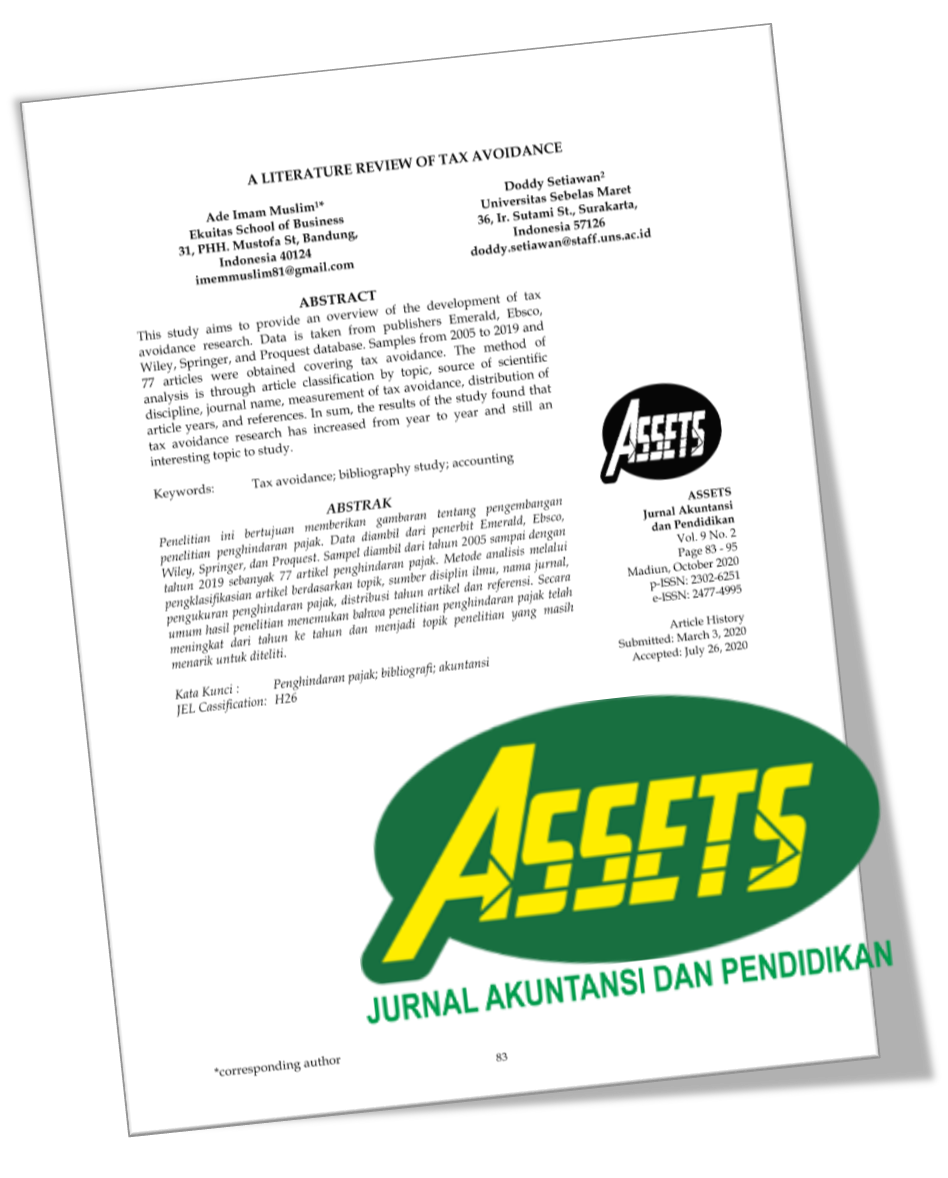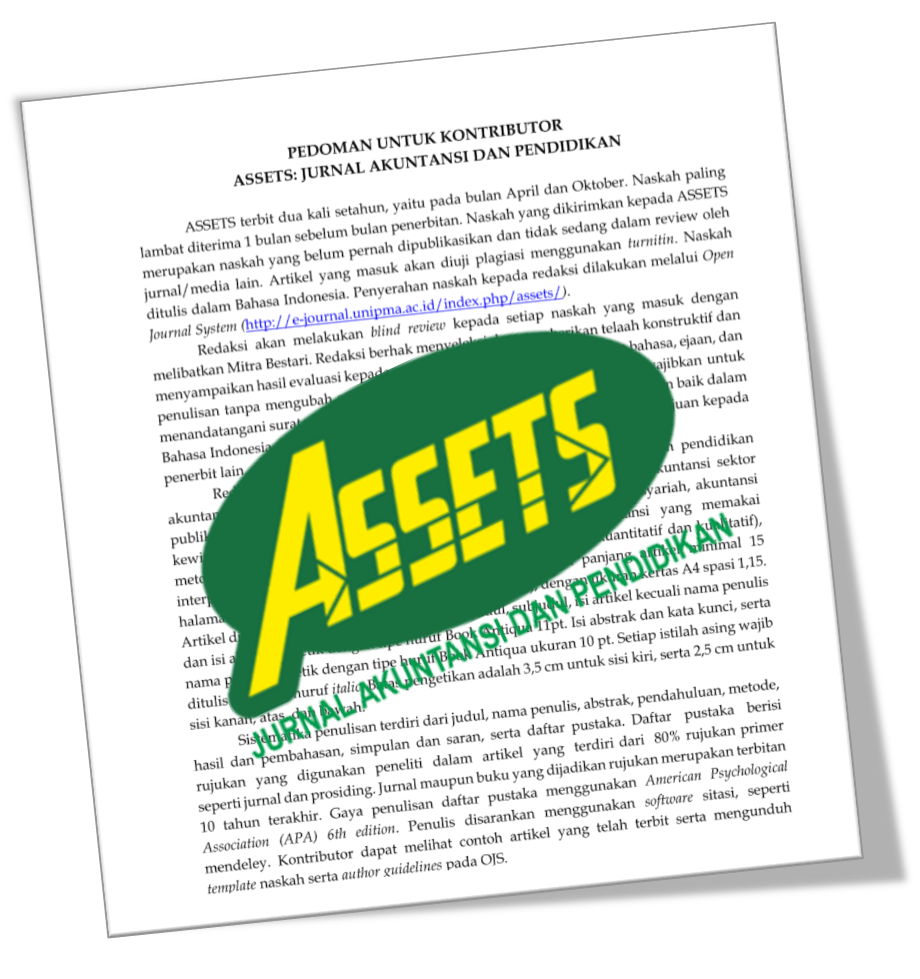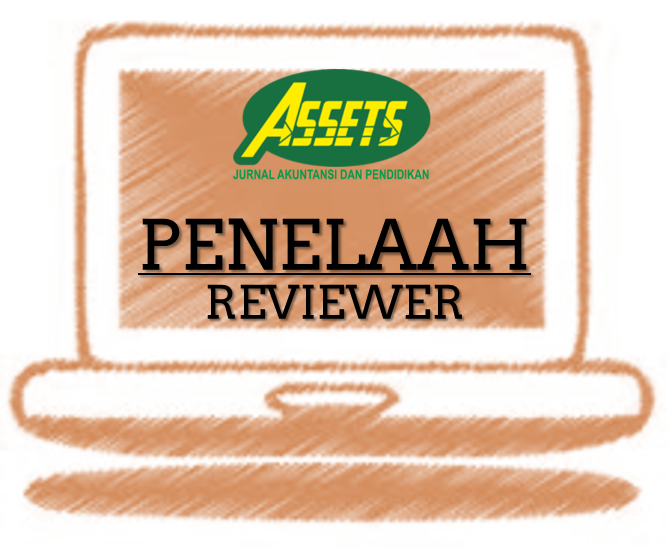THE ETHICAL DILEMMA OF VILLAGE OFFICIALS: FRAUD IN THE DISTRIBUTION OF DIRECT CASH ASSISTANCE
DOI:
https://doi.org/10.25273/jap.v12i2.15997Keywords:
Fraud, Ethical Dilemma, BLT-DD, Role of Village Officials, Dilema Etis, Peran Perangkat DesaAbstract
ABSTRACT
The purpose of this research is to reveal the ethical dilemma of the role of village officials in the fraudulent practice of distributing Village Fund Direct Cash Assistance (BLT-DD). This research uses a phenomenological approach. The study showed that village officials experienced an ethical dilemma regarding fraud in distributing BLT-DD. First, the village head experienced a dilemma between his residents' demand that the BLT-DD program be divided equally so that because of the sympathy felt by the village head, the BLT-DD money was cut. Second, the village secretary must face the village head’s orders to manipulate signatures. Third, the Village Consultative Board felt uncomfortable wanting to monitor the performance of the village head. Fourth, there is a lack of clarity in the structure of the BLT-DD volunteer team, so they experience confusion in carrying out their duties in the BLT-DD program. Fifth, the experience gained becomes a solution to overcoming the dilemma experienced by the actor in the fraudulent practice of distributing BLT-DD.
ABSTRAK
Tujuan penelitian ini menyingkap dilema etis peran perangkat desa pada praktik fraud penyaluran Bantuan Langsung Tunai Dana Desa (BLT-DD). Penelitian ini mengggunakan pendekatan fenomenologi. Hasil penelitian menunjukkan bahwa perangkat desa mengalami dilema etis atas fraud yang dilakukan pada penyaluran BLT-DD. Pertama, kepala desa mengalami dilema antara permintaan warganya atas program BLT-DD harus dibagi rata, sehingga atas rasa simpati yang dialami kepala desa maka uang BLT-DD dipotong. Kedua, sekretaris desa harus menghadapi perintah kepala desa untuk manipulasi tandatangan. Ketiga, Badan Permusyawaratan Desa mengalami rasa tidak enak hati yang ingin mengawasi kinerja kepala desa. Keempat, adanya ketidak jelasan struktur tim relawan BLT-DD, sehingga mereka mengalami kebingungan untuk menjalankan tugasnya pada program BLT-DD. Kelima, Pengalaman yang diperoleh menjadi solusi dalam mengatasi rasa dilema yang dialami sang aktor pada praktik fraud penyaluran BLT-DD.
Downloads
References
Arestanti, M. A., Herawati, N., & Rahmawati, E. (2016). Faktor-faktor internal individual dalam pembuatan keputusan etis: Studi pada konsultan pajak di Kota Surabaya. Journal of Accounting and Investment, 17(2), 104–117.
Arianto, B., & Bakthiar, R. (2023). Effective Strategies for Preventing Bribery on Village Fund Management in Pandeglang Regency. ASSETS: Jurnal Akuntansi Dan Pendidikan, 12(1), 83–103.
Aseh, S., Gafar, T. F., & Zamhasari, Z. (2021). Problematika Penyaluran Bantuan Langsung Tunai Dana Desa (BLT DD) Tahun 2020. JOELS: Journal of Election and Leadership, 2(1), 30–40. https://doi.org/10.31849/joels.v2i1.7661
Association of Certified Fraud Examiners. (2012). Association of Certified Fraud Examiners.
Briando, B., & Purnomo, A. P. (2019). Etika Profetik bagi Pengelola Keuangan Negara. Jurnal Akuntansi Multiparadigma, 10(2), 342–364. https://doi.org/10.18202/jamal.2019.08.10020
Caminero, B., & Santangelo, S. (2008). A moral Dilemma : Ethics in Tess of the D ’ urbervilles. Journal English Studies, 75(1), 46–61. https://doi.org/10.1080/00138389408598896
Cooper, H. Y. P. K. (2016). Re-understanding corruption in the Indonesian public sector through three behavioral lenses. Journal of Financial Crime, 23(4), 1–36.
Creswell, J. W. (2007). Qualitative Inquiry and Research Design: Choosing Among Five Approaches (2nd ed.). Sage Publications, Inc.
Dewi, G. A. K. R. S. (2016). Pengaruh Moralitas Individu dan Pengendalian Internal pada Kecurangan Akuntansi (Studi Eksperimen pada Pemerintah Daerah Provinsi Bali). Jurnal Ilmiah Akuntansi, 1(1), 77–92.
Englander, M., & Morley, J. (2021). Phenomenological psychology and qualitative research. Phenomenology and the Cognitive Sciences, September 2021. https://doi.org/10.1007/s11097-021-09781-8
Ermasova, N., Clark, D., Nguyen, L., & Ermasov, S. (2018). Russian Public Sector Employees ’ Reasoning of Ethical Behavior : An Empirical Study. International Journal of Public Administration, 00(00), 1–20. https://doi.org/10.1080/01900692.2017.1423329
Fadilah, R., Siregar, F. A., & Harahap, I. (2021). Bantuan Sosial Sembako dan Bantuan Sosial Tunai. Jurnal El-Thawalib, 2(3), 167–179. http://jurnal.iain-padangsidimpuan.ac.id/index.php/thawalib/article/view/3992
Faisol, F., & Tarjo, T. (2022). Uncovering Fraud Patterns of Unscrupulous Insurance Agents. International Colloquium Forensics Accounting and Governance (ICFAG), 2(1), 19–28.
Faizah, Y. N., Toyyib, M., Tarjo, T., & Wahyuni, S. (2022). Menyingkap Tabir Potensi Fraud Pajak Penghasilan Youtuber Lokal. Jurnal Riset Dan Aplikasi : Akuntansi Dan Manajemen, 5(3), 285–296. https://doi.org/doi.org/10.33795/jraam.v5i3.003
Fridiyanti, Y. N., Erowati, D., & Yuwanto. (2021). Peran Pemerintah Desa Bandungrejo Kecamatan Karanganyar Kabupaten Demak Dalam Pemanfaatan Dana Desa Untuk Penanggulangan Covid-19. Jurnal Moderat, 7(4), 844–855.
Harinawati, Dewi, R., Candrasari, R., Saputra, J., Ibrahin, Y., & Muhammad, Z. (2020). Evaluation of the Distribution of Direct Cash Assistance ( BLT ) for the Covid 19 Pandemic Period and the Communication Patterns of the Task Force ( Covid 19 ) in Simpang Keuramat District, North Aceh. Advances in Social Science, Education, and Humanities Research. Proceedings of the International Conference on Social Science, Political Science, and Humanities, 495, 376–380.
Hassinger, J. P. S. R. E. (2007). Using Case Studies of Ethical Dilemmas for the Development of Moral Literacy: Towards Educating. Journal of Educational Administration, 45(4), 451–470.
Hopper, T. (2017). Neopatrimonialism , Good Governance, Corruption and Accounting in Africa : Idealism versus Pragmatism. Journal of Accounting in Emerging Economies, 7(2), 1–40. https://doi.org/http://dx.doi.org/10.1108/JAEE-12-2015-0086
Iping, B. (2020). Perlindungan Sosial Melalui Kebijakan Program Bantuan Langsung Tunai (Blt) Di Era Pandemi Covid-19: Tinjauan Perspektif Ekonomi Dan Sosial. Jurnal Manajemen Pendidikan Dan IImu Sosial, 1(2), 506–515. https://doi.org/10.38035/JMPIS
Islamiati, H., Anzib, N., & Ariani, N. E. (2023). Unravelling the Auditor’s Dilemma : Ethics or Money? A Cas of Indonesia Auditors. Jurnal Reviu Akuntansi Dan Keuangan, 13(2), 316–332. https://doi.org/10.22219/jrak.v13i2.26537
Isma’il, M., Haryadi, B., & Prasetyono, P. (2023). Revealing Fraud in The Distribution of Cash Direct Assistance-Village Funds. Jurnal ASET (Akuntansi Riset), 15(1), 73–88. https://doi.org/10.17509/jaset.v15i1.57179
Iswahyudi, A. P., Faisol, F., Akbar, M., Wati, S., & Munawaroh, S. (2023). Effectiveness of Risk Management on a Company’s Financial Performance: Study of Meta Analysis. Journal of Business Management and Economic Development, 1(02), 366–378. https://doi.org/10.59653/jbmed.v1i02.158
Janin, F. (2017). When being a partner means more: The external role of football club management accountants. Management Accounting Research, 35, 5–19.
Kamayanti, A. (2021). Metodologi Penelitian Kualitatif Akuntansi: Pengantar Religiositas Keilmuan (Edisi Revi). Yayasan Rumah Peneleh.
Lancaster, D. R. H. van der M. J. (2015). Ethics Beyond the Code of Conduct – Understanding the Ethical Dilemmas of Entrepreneurs. Journal Meditari Accountancy Research, 11(1), 113–128.
López-Hernández, C., & Chávez, A. L. (2022). The Scratch Dilemma. The CASE Journal, 18(6), 884–897. https://doi.org/10.1108/TCJ-05-2021-0074
Maknolia, Y., & Hidayat, D. (2020). Respon Masyarakat terhadap Bantuan Pemerintah Selama Covid-19 di Kota Bandung. MUTAKALLIMIN ; Jurnal Ilmu Komunikasi, 3(2), 1–7.
Meilawathi, N. W., & Sudaryati, E. (2021). Dilema Etis Auditor dan Ajaran Karma Pala. Jurnal Akuntansi Multiparadigma, 12(1), 132–152.
Menteri Dalam Negeri RI. (2016). Peraturan Menteri Dalam Negeri Republik Indonesia, Nomor 110 Tahun 2016 Tentang Badan Permusyawaratan Desa.
Moleong, l. J. (2014). Metode Penelitian Kualitatif. In PT Remaja Rosdakarya. PT Remaja Rosdakarya.
Noviriani, E., Ludigdo, U., & Baridwan, Z. (2015). Studi Fenomenologi atas Dilem Etis Auditor Internal Pemerintahan. Ekuitas: Jurnal Ekonomi Dan Keuangan, 19(2), 217–240.
Pike, M. E., & Barrainkua, I. (2015). An exploratory study of the pressures and ethical dilemmas in the audit conflict. Revista de Contabilidad= Spanish Accounting Review:[RC-SAR], 19(1), 10–20.
Pramanik, N. D. (2020). Dampak Bantuan Paket Sembako Dan Bantuan Langsung Tunai Terhadap Kelangsungan Hidup Masyarakat Padalarang Pada Masa Pandemi Covid-19. Jurnal Ekonomi, Sosial & Humaniora, 01(12), 113–120.
Pulungan, A. H., Adhitama, P., Hasudungan, A., & Hasibuan, B. (2020). Affective and Normative Commitment as Intervening Variables of the Links between Ethical Leadership, Religiosity, and Fraud. Jurnal Dinamika Akuntansi Dan Bisnis, 7(2), 167–188.
Purnawan, H., Triyanto, D., & Thareq, S. I. (2022). Implementasi Kebijakan Bantuan Langsung Tunai Dana Desa di Desa Taba Air Pauh Kabupaten Kepahiang. PERSPEKTIF, 11(2), 407–416.
Putri, M. Y., R, A. M. P., & Susanti, N. A. (2021). Dilema Etis Profesionalisme Auditor Terhadap Penggelapan Pajak. Paulus Journal of Accounting (PJA), 3(1), 1–22.
Puyou, F.-R. (2018). Systems of secrecy: Confidences and gossip in management accountants’ handling of dual role expectations and MCS limitations. Management Accounting Research, 40, 15–26.
Rachaju, K. (2021). Effectiveness of Cash Assistance ( BLT ) for Communities Affected by The Pandemic Covid-19 : Case study in Sirnajaya village, Cibadak sub-district, Sukabumi district. Journal Legal Brief, 11(1), 320–330.
Rahayuni, W., & Rusli, Z. (2021). Efektivitas Program Bantuan Langsung Tunai Pada Masa Pandemi Covid-19 Di Desa Kampung Baru Kecamatan Gunung Toar. Jurnal As Siyasah, 6(2), 17–27.
Rifai, M. A. (2007). Manusia Madura: Pembawaan, Perilaku, Etos Kerja, Penampilan, dan Pandangan Hidupnya seperti Dicitrakan Peribahasanya (Edisi Satu). Pilar Media, Yogyakarta.
Sahdan, M. H., Cowton, C. J., & Drake, J. E. (2020). Forensic Accounting Services in English Local Government and the Counter-Fraud Agenda. Journal Public Money & Management, 0(0), 1–10. https://doi.org/10.1080/09540962.2020.1714208
Sandi, A. K., & Cita, F. P. (2021). Pemanfaatan Bantuan Lansung Tunai (Blt) Terhadap Peningkatan Kesejahteraan Masyarakat Kecamatan Jereweh Kabupaten Sumbawa Barat. Nusantara Journal Of Economics (NJE), 3(2), 13–19.
Saputro, D. S. H., Riharjo, I. B. R., & Ardini, L. (2020). Dilema Etis Akuntabilitas dalam Keputusan Bisnis. Jurnal Akuntansi Multiparadigma, 11(1), 109–126.
Sasuwuk, C. H., Lengkong, F. D., & Palar, N. A. (2021). Implementasi Kebijakan Penyaluran Bantuan Langsung Tunai Dana Desa (Blt-Dd) Pada Masa Pandemi Covid-19 Di Desa Sea Kabupaten Minahasa. JAP, 07(108), 78–89.
Shepherd, D., & Button, M. (2018). Organizational Inhibitions to Addressing Occupational Fraud : A Theory of Differential Rationalization. Journal Deviant Behavior, 00(00), 1–21. https://doi.org/10.1080/01639625.2018.1453009
Single, L., Donald, S., & Almer, E. (2018). The relationship of advocacy and mentorship with female accountants’ career success. Advances in Accounting, 42, 12–21.
Solangi, R., Umrani, W. A., Solangi, I., & Memon, M. A. (2019). To Do or Not to Do : the Real State of Real Estate. Journal Emerald Emerging Markets Case Studies, 9(2), 1–11. https://doi.org/10.1108/EEMCS-12-2018-0264
Tarjo, T., Faizah, Y. N., Toyyib, M., Sakti, E., & Pramudita, H. E. (2021). Uncovering of Potential Fraud in the Preparation of Village Planning and Budgeting Documents in Madura. Jurnal Ilmiah Akuntansi Dan Bisnis, 16(2), 235–246. https://doi.org/10.24843/JIAB.2021.v16.i02.p04
Tarjo, T., Prasetyono, P., Sakti, E., Pujiono, P., Mat-isa, Y., & Safkaur, O. (2023). Predicting Fraudulent Financial Statement Using Cash Flow Shenanigans. Journal Business; Theory and Practice, 24(1), 33–46.
Tarjo, T., & Riskiyadi, M. (2022). Revealing The Fraud at the End of the Fiscal Year at Local Government Agencies in Indonesia. International Journal Sector Performance Management, 9(4), 451–464.
Tarjo, T., Sakti, E., & Anggono, A. (2021). Detecting Indications of Financial Statement Fraud: a Hexagon Fraud Theory Approach. AKRUAL: Jurnal Akuntansi, 13(1), 119–131. https://doi.org/10.26740/jaj.v13n1.p119-131
Utama, A. A. G. S., & Wulandari, T. N. A. (2019). Fraud Prevention Using Village Financial Management Control System. International Conference on Innovative Research Across Disciplines, 394 3rd(3).
Williams, H. (2021). The Meaning of “ Phenomenology â€: Qualitative and Philosophical Phenomenological Research Methods The Meaning of “ Phenomenology â€: Qualitative and Philosophical. The Qualitative Report Journal, 26(2), 366–385.
Wulandari, Musyarofah, S., & Asyim, M. (2017). Konflik Peran Perangkat Desa Terhadap Pengelolaan Keuangan Desa: Menguak Kesadaran Para Aktor. Jurnal Akuntansi, 5(2), 146–158. https://doi.org/10.24964/ja.v5i2.285
Yauri, K., Fitriana, N., & Moshavi, S. (2022). Efektivitas Penyaluran Bantuan Langsung Tunai Bagi Masyarakat Terdampak Covid-19. Jurnal Media Akuntansi Dan Perpajakan Indonesia, 3(2), 121–150.
Yuliastina, M., Hudaya, M., Mangkurat, U. L., Nor, W., & Mangkurat, U. L. (2020). Prevention and detection of fraud Prevention and Detection of Fraud in Village Fund Supervision in Barito Kuala District. ASSETS: Jurnal Akuntansi Dan Pendidikan, 9(2), 156–170.
Yunikasari, E., Nusantoro, J., & Hendri, N. (2022). Analisis Akuntabilitas dan Trasnparansi Penyaluran Dana Desa (DD) Untuk Masyarakat Terdampak Covid-19. Jurnal Akuntansi AKTIVA, 3(1), 75–81.
Zouharis, L. (2016). A New Hire's Dilemma : Reporting Corruption. The CASE Journal, 12(3), 440–448. https://doi.org/10.1108/TCJ-12-2015-0076
Downloads
Additional Files
- FRAUD DISTRIBUTION OF DIRECT CASH ASSISTANCE - VILLAGE FUNDS, UNLOCKING THE ETHICAL DILEMMA OF THE VILLAGE APPARATUS ROLE
- FRAUD DISTRIBUTION OF DIRECT CASH ASSISTANCE - VILLAGE FUNDS, UNLOCKING THE ETHICAL DILEMMA OF THE VILLAGE APPARATUS ROLE
- FRAUD DISTRIBUTION OF DIRECT CASH ASSISTANCE - VILLAGE FUNDS, UNLOCKING THE ETHICAL DILEMMA OF THE VILLAGE APPARATUS ROLE
- FRAUD DISTRIBUTION OF DIRECT CASH ASSISTANCE - VILLAGE FUNDS, UNLOCKING THE ETHICAL DILEMMA OF THE VILLAGE APPARATUS ROLE
- FRAUD DISTRIBUTION OF DIRECT CASH ASSISTANCE - VILLAGE FUNDS, UNLOCKING THE ETHICAL DILEMMA OF THE VILLAGE APPARATUS ROLE
- FRAUD DISTRIBUTION OF DIRECT CASH ASSISTANCE - VILLAGE FUNDS, UNLOCKING THE ETHICAL DILEMMA OF VILLAGE APPARATUS ROLE
Published
Issue
Section
License
Perjanjian Lisensi dan Hak Cipta
Saat mengirimkan naskah ke jurnal, penulis menyatakan bahwa:
- Mereka diberi wewenang oleh rekan penulisnya untuk masuk ke dalam perjanjian ini.
- Karya yang dimaksud belum pernah diterbitkan secara resmi sebelumnya, kecuali dalam bentuk abstrak atau sebagai bagian dari kuliah, resensi, tesis, atau overlay jurnal yang diterbitkan.
- Karya yang dimaksud tidak sedang dipertimbangkan untuk diterbitkan di tempat lain,
- Publikasi karya yang dimaksud telah disetujui oleh semua penulis dan oleh otoritas yang bertanggung jawab - secara tahu sama tahu atau eksplisit - dari lembaga tempat pekerjaan itu dilakukan.
- Mereka mengamankan hak untuk mereproduksi materi apa pun yang telah diterbitkan atau dilindungi hak cipta di tempat lain.
- Mereka menyetujui lisensi dan perjanjian hak cipta berikut.
Hak Cipta
Penulis yang menerbitkan dengan ASSETS: Jurnal Akuntansi dan Pendidikan menyetujui persyaratan berikut:
- Penulis mempertahankan hak cipta dan memberikan jurnal hak publikasi pertama dengan karya yang secara bersamaan dilisensikan di bawah Lisensi Atribusi Creative Commons (CC BY-SA 4.0) yang memungkinkan orang lain untuk berbagi karya dengan pengakuan kepenulisan karya dan publikasi awal di jurnal ini.
- Penulis dapat masuk ke dalam pengaturan kontrak tambahan yang terpisah untuk distribusi non-eksklusif dari versi jurnal yang diterbitkan dari karya tersebut (misalnya, mempostingnya ke repositori institusional atau menerbitkannya dalam sebuah buku), dengan pengakuan publikasi awalnya di jurnal ini.
- Penulis diizinkan dan didorong untuk memposting karya mereka secara daring (misalnya di repositori institusional atau di situs web mereka) sebelum dan selama proses pengiriman, karena dapat menghasilkan pertukaran yang produktif, serta kutipan lebih awal dan lebih besar dari karya yang diterbitkan.
License and Copyright Agreement
In submitting the manuscript to the journal, the authors certify that:
- Their co-authors authorize them to enter into these arrangements.
- The work described has not been formally published before, except as an abstract or part of a published lecture, review, thesis, or overlay journal.
- That it is not under consideration for publication elsewhere,
- That its publication has been approved by all the author(s) and by the responsible authorities – tacitly or explicitly – of the institutes where the work has been carried out.
- They secure the right to reproduce any material already published or copyrighted elsewhere.
- They agree to the following license and copyright agreement.
Copyright
Authors who publish with ASSETS: Jurnal Akuntansi dan Pendidikan agree to the following terms:
- Authors retain copyright and grant the journal right of first publication with the work simultaneously licensed under a Creative Commons Attribution License (CC BY-SA 4.0) that allows others to share the work with an acknowledgment of the work's authorship and initial publication in this journal.
- Authors can enter into separate, additional contractual arrangements for the non-exclusive distribution of the journal's published version of the work (e.g., post it to an institutional repository or publish it in a book), with an acknowledgment of its initial publication in this journal.
- Authors are permitted and encouraged to post their work online (e.g., in institutional repositories or on their website) before and during submission, as it can lead to productive exchanges and earlier and more extraordinary citations of published work.

ASSETS: Jurnal Akuntansi dan Pendidikan is licensed under a Creative Commons Attribution-ShareAlike 4.0 International License.










